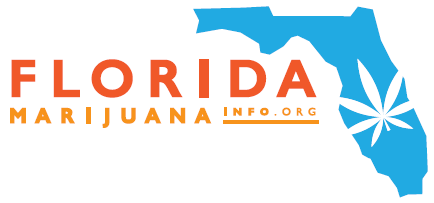Another problem that will plague not just any universities which would try to research cultivation of low-THC cannabis, but also the 5 nurseries the Department of Health will select to grow low-THC cannabis, is that there is no legitimate supply of seeds, plants, or tissue cultures. Under federal law, a DEA license would be required to import viable cannabis seeds of any kind. Recently, the DEA has hassled states like Kentucky and Colorado, which have been trying to import hemp seeds under the new hemp amendment that was enacted in the Farm Bill. While the DEA eventually relented in stopping the first shipments which imported viable hemp seeds into Kentucky from Italy, it is unlikely Florida universities and nurseries would receive permission to import seeds from other states or countries for medical research. It seems that Floridians may have to follow in the footsteps of Thomas Jefferson, who once smuggled a special strain of hemp seeds out of China, to France, and then to America, where he farmed hemp at Monticello.
Feds Possible But Unlikely Legal Source For Seeds
“If you look at the language of the bill and you determine what research and university entity is going to work with these organizations, it’s the University of Florida, which is a federal land-grant university,” state Rep. Katie Edwards told the Sun Sentinel. “Now, there is a federal marijuana farm at another land-grant university, the University of Mississippi … Why wouldn’t it be able to get it to the University of Florida and then get it to growers? That sounds more plausible than getting someone to break the law by bringing it in from out of state.” But with the University of Florida deciding not to conduct research on cultivating low-THC cannabis or distributing it to patients, it seems unlikely that the section of SB 1030 that called for research on, “agricultural development, production, clinical research, and use of liquid medical derivatives of cannabidiol and low-THC cannabis,” will come to fruition, or that a legal source for seeds will be found.
Seed Smuggling Solution
Many nurseries have no desire to break the law by smuggling seeds into Florida from other states or abroad, this issue has kept many nurseries from applying to grow low-THC cannabis. “Easiest way to do it is a nondescript white van moving along I-10,” state Rep. Matt Gaetz (R-Fort Walton Beach), co-sponsor of SB 1030, told the Sun Sentinel. “How these entities get started is clearly not something set forth in the law I passed. I think anybody looking for some sort of comforting immunity is going to be sadly disappointed.” Florida’s Department of Health could determine what the regulations will be for importing seeds, even though it would be illegal under federal law to import them without permission from the DEA.
Rep. Gaetz believes those willing to break federal law will allow Florida’s low-THC program to survive. “In one of the hearings where I’m getting tough questions about this very issue and I’m not able to answer them, we had one man. Lives in my district and has a son with Dravets Syndrome. His son has never talked. And he stands up and says, ‘If you want me to get it, I’ll get it right now. Just tell me where it is. I want my son to say I love you.’”
But many are not willing to break the law, in January, at a legislative workshop for SB 1030, Rep. Gaetz asked Peyton Moseley, a parent of an epileptic child, “Why don’t you just find a way to get the stuff into Florida illegally?” Peyton responded to the question by telling Rep. Gaetz, “First of all, Florida is our home, but we’re not willing to break the law even to help our daughter,” Peyton answered. “And there are so many parents who are in the same situation. If we leave, that’s one less voice for everybody else who’s suffering.” Rep. Gaetz was later reported in the Miami Herald as saying, “I don’t know many people on the planet Earth who spend three years to adopt a severely ill child and then have such respect for our laws that they are unwilling to break them.” With all of the obstacles preventing implementation of the Compassionate Medical Cannabis Act of 2014, unless people are willing to smuggle seeds or wait and see if the DEA will grant permission, it seems that Floridians may only get access to medical cannabis if Amendment 2 is approved by voters in November.














 OMD Agency
OMD Agency
Recent Comments